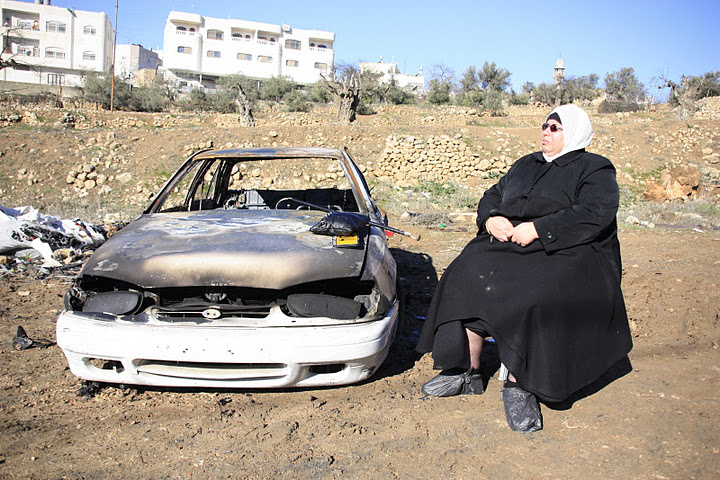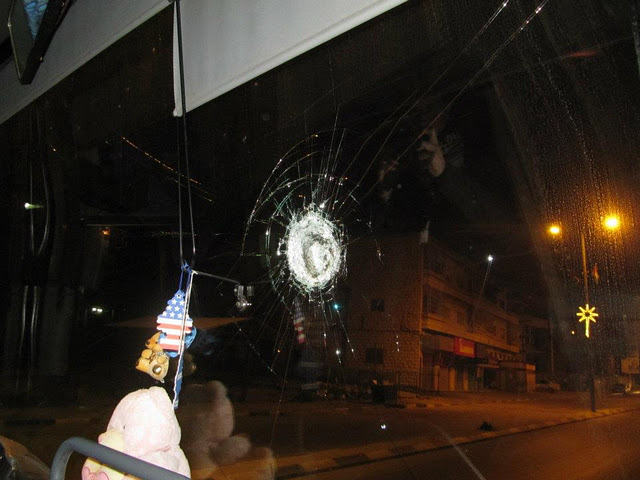Tag: ‘Price tag’ campaign
-
In Photos: Zionist settlers burn the vehicle of a 53 year old woman
21 January 2012 | International Solidarity Movement On Sunday, the 16th of January, at approximately 2 AM, about fifty settlers, accompanied by Israeli soldiers, entered the Abu Haikal family’s field in the neighborhood of Tel Rumeideh in Hebron. After throwing stones at the family’s house, they savagely burnt the car of Hana Haikal, fifty-three years…
-
Israeli army complicit in settler car-burning
by Sarah 17 January 2012 | International Solidarity Movement, West Bank On Sunday, the 16th of January, at approximately 2 AM, about fifty settlers, accompanied by Israeli soldiers, entered the Abu Haikal family’s field in the neighborhood of Tel Rumeideh in Hebron. After throwing stones at the family’s house, they savagely burnt the car of…
-
Choir bus hit by settlers on way back from Nablus
17 December 2011 | Notes from Bethlehem I was hoping to write about something more pleasant regarding our Christmas ministry in Nablus. I was hoping to write about the usual; singing and rejoicing with the believers there. As always, Nablus concert was special. The Anglican church where we usually go was full. There was joy.…


